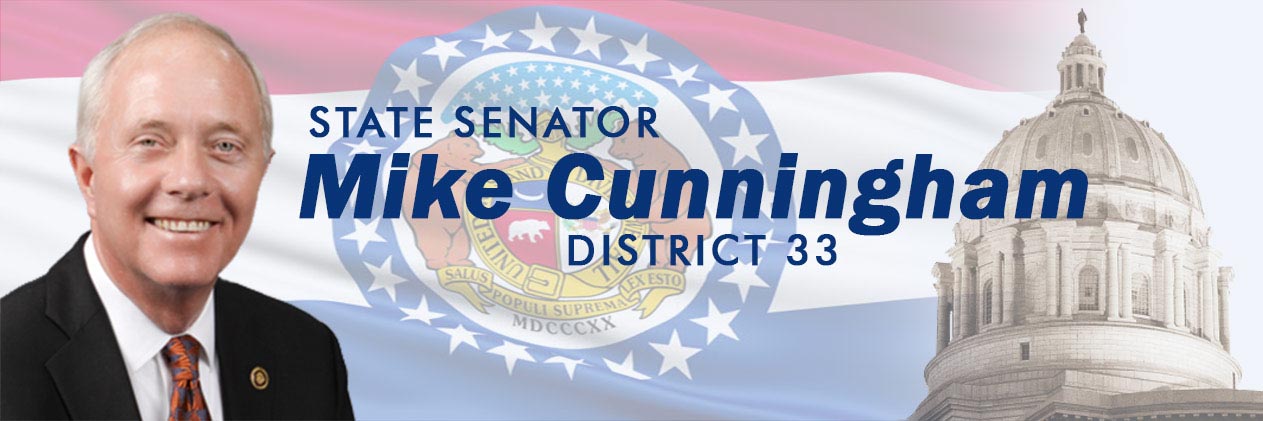
Legislative Column for May 30, 2019
There is a passage in the Old Testament that speaks of holding children accountable for the things their fathers did. The phrasing is a bit odd, as Bible stories sometimes are, but the verse says “the fathers have eaten sour grapes, and the children’s teeth are set on edge.”
The point of the passage is that no longer would accountability for transgressions pass from one generation to the next. Each man would be judged on his own actions. I was reminded of these words recently as the Missouri Legislature completed its work on the 2020 state budget. Frankly, part of those negotiations left a sour taste in my mouth.
As the conference committee worked to reconcile differences between the House and Senate versions of the higher education budget, a question arose about language relating to undocumented immigrants. Specifically, should students who have applied for temporary immigration status under DACA, or Deferred Action for Childhood Arrivals, qualify for in-state tuition at Missouri’s public colleges and universities?
DACA began in 2012 as a revision to federal immigration policy. Essentially, the federal government decided that young people who were brought to America as children should be given a path to achieve limited lawful immigration status. The law did not provide for amnesty or citizenship, but rather a way to avoid deportation. It was a recognition that children should not be punished for the sins of their fathers and mothers.
Since 2015, House Bill 3, the higher education budget, has contained language that prohibited Missouri public colleges and universities from offering scholarships to students with unlawful immigration status, including those protected under DACA. The language also required these students to pay the higher tuition rates charged to international students.
This year, the House of Representatives carried forward the DACA language from previous budget bills. The Senate dropped it, however. The Senate position reflected the view that these young students were in the United States by no fault of their own. Many of these DACA kids attended elementary school in Missouri, played on the local sports teams and were viewed within their communities as just another child on the playground, no different from their peers who had been born here.
I offered a compromise during the conference committee discussions that allowed public institutions of higher education to extend in-state tuition rates to some DACA students. Only students who had been in the country for at least 10 years, had paid taxes and were brought here by their parents would qualify. These students would not be eligible for any scholarships or financial aid. Every member of the committee – myself included – signed onto the conference report.
Normally, once a budget conference committee comes to terms, each legislative chamber falls in line and approves the numbers. That did not happen this time. The House rejected the education budget due to the absence of the DACA language. With only hours remaining before the constitutional deadline for passing a balanced budget, the Senate retreated and accepted the House version of the budget.
I don’t think we’re done with this issue yet. As was pointed out during spirited floor discussions prior to the Senate’s final vote on HB 3, DACA students are not necessarily unlawful. They do have recognized immigration status as a result of applying for and being accepted into the DACA program. Shouldn’t their willingness to come out of the shadows count for something?
According to the federal government there are more than 3,500 DACA recipients living in Missouri. Those of us from rural areas probably know some of them. Their mothers and fathers work at our agricultural production facilities, restaurants and factories. They attend our churches. The children go to our schools. With few exceptions, they are good neighbors.
Let me be clear. I do not condone illegal entry into the United States, nor am I “soft on illegals” as a few constituents charged following my vote on the budget bill. In 2017, I sponsored Senate Bill 34, a major revision of Missouri’s criminal laws. One provision of the bill ended the “catch and release” of undocumented persons who repeatedly enter Missouri illegally. Thanks to that legislation, those who reenter the state illegally are incarcerated in the state penitentiary for three to five years, not simply given a bus ticket back to the border. This year, I sponsored Senate Joint Resolution 18, a constitutional amendment to require law enforcement officers to make a reasonable attempt to verify the immigration status of anyone who was stopped, detained or arrested and suspected of being in the country illegally. Unfortunately, that measure did not pass.
Despite my record of proposing strong immigration laws, I’m not comfortable with the Legislature punishing Missouri children for things their parents did in the past. Reasonable people can disagree about what the parents did, but is it fair to hold the children at fault?
Illegal immigration is a serious issue, but there is room for compassion in public policy. Children who are brought to America merit different consideration than those who willingly crossed the border illegally. I look forward to discussing this issue as well as the question of DACA student tuition when the Legislature reconvenes next year.
It is my great honor to represent the 33rd Senatorial District. Although legislative activity is finished for 2019, I remain your senator throughout the year. If there’s anything that I can do to assist you, please feel free to contact my Capitol office at (573) 751-1882.
